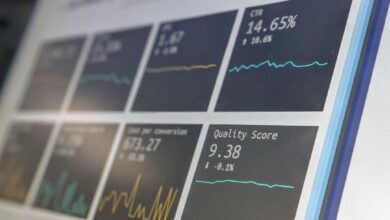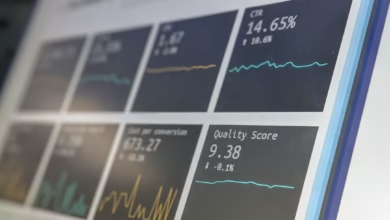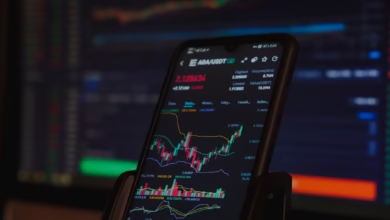Mastering Scalping: Profiting from Quick Trades in Forex, Stocks, and Crypto Trading

In the fast-paced world of trading, where every second counts and market dynamics shift rapidly, scalping has emerged as a popular strategy for traders looking to capitalize on minor price fluctuations. Scalping involves executing quick trades to profit from small price changes, making it a favored approach in various trading arenas, including forex trading, stock trading, and crypto trading. This article delves into the intricacies of scalping, exploring effective trading strategies that span across different markets such as commodities trading, derivatives trading, and index trading. Additionally, we will discuss the importance of risk management in scalping, emphasizing how trading psychology plays a crucial role in high-frequency trading environments. Whether you're a seasoned trader engaging in margin trading or a newcomer exploring online trading platforms, understanding the principles of scalping can enhance your trading arsenal and improve your market analysis skills. Join us as we dissect the world of scalping and uncover the techniques that can help you navigate the complexities of day trading and swing trading with confidence.
- 1. Understanding Scalping: A Deep Dive into Quick Trades and Market Dynamics
- 2. Effective Trading Strategies for Scalping: Techniques Across Forex, Stocks, and Crypto
- 3. Risk Management in Scalping: Balancing High-Frequency Trading with Trading Psychology
1. Understanding Scalping: A Deep Dive into Quick Trades and Market Dynamics
Scalping is an advanced trading strategy that focuses on making quick trades to capitalize on small price movements in various markets, including stock trading, forex trading, and crypto trading. This method requires a deep understanding of market dynamics and often involves executing numerous trades within a single day to accumulate small profits that can add up significantly over time.
At its core, scalping is about speed and precision. Traders utilize technical analysis to identify trends and patterns that indicate potential price changes. This might involve analyzing historical data, using indicators, and utilizing charting tools available on online trading platforms. Unlike day trading or swing trading, which may focus on longer time frames, scalpers operate on shorter time frames, often holding positions for just a few seconds to minutes.
High-frequency trading (HFT) and algorithmic trading play a significant role in the scalping strategy. These approaches leverage technology to execute trades at lightning speed, allowing scalpers to take advantage of fleeting price changes that may occur within milliseconds. Additionally, scalpers often employ risk management techniques to protect their capital, using stop-loss orders to minimize potential losses and ensure that their trading strategies remain profitable.
Fundamental analysis can also play a role in scalping, particularly for commodities trading or index trading, where broader market movements can influence smaller price changes. Understanding trading psychology is crucial for scalpers, as the rapid pace of trades can lead to emotional decision-making. Successful scalpers must remain disciplined and focused, avoiding common pitfalls associated with leverage trading and margin trading.
Furthermore, scalping can be employed across various markets, including derivatives trading, options trading, and futures trading, each requiring a tailored approach based on the specific characteristics of the asset. Copy trading and social trading platforms have also emerged, allowing less experienced traders to follow and replicate the strategies of successful scalpers, making this strategy more accessible.
In summary, scalping is a dynamic trading strategy that demands a keen understanding of market analysis, risk management, and trading psychology. Whether in forex trading, stock trading, or crypto trading, mastering the art of quick trades can lead to substantial profits, provided that traders remain vigilant and disciplined in their approach.
2. Effective Trading Strategies for Scalping: Techniques Across Forex, Stocks, and Crypto
When it comes to scalping, effective trading strategies are crucial for capitalizing on small price changes across various markets, including forex, stocks, and crypto. Each market presents unique opportunities, and traders can adopt different techniques to enhance their scalping success.
One of the most popular strategies in scalping is the use of technical analysis. This involves analyzing price charts and indicators to identify short-term trends and entry points. Traders often rely on tools like moving averages, Bollinger Bands, and Relative Strength Index (RSI) to make informed decisions. For instance, in forex trading, scalpers might look for currency pairs with high volatility, as this can lead to more significant price fluctuations within short timeframes.
In stock trading, market depth is vital. Scalpers can monitor the order book to identify support and resistance levels. By observing the buy and sell orders, traders can anticipate price movements and execute trades accordingly. This approach is especially effective in high-frequency trading environments, where speed and execution are paramount.
For crypto trading, leveraging online trading platforms that offer real-time data is essential. Scalpers often employ algorithmic trading strategies to automate their trades, allowing them to react quickly to market changes without emotional interference. Additionally, using margin trading can amplify gains, but it’s crucial to implement risk management techniques to avoid significant losses.
Another effective strategy across all markets is the practice of social trading and copy trading. By following experienced traders, newcomers can learn valuable insights and replicate successful scalping trades. This community-driven approach can enhance trading psychology, as traders gain confidence from shared knowledge and strategies.
In futures and options trading, arbitrage trading strategies can be particularly beneficial for scalpers. By simultaneously buying and selling related assets, traders can profit from price discrepancies in different markets. This requires keen market analysis and a solid understanding of derivatives trading.
Ultimately, effective risk management is paramount in scalping. Traders should set strict stop-loss orders to protect their capital and avoid over-leveraging, which can lead to significant losses. By combining technical and fundamental analysis, traders can refine their strategies and make informed decisions that align with their trading goals.
In summary, whether engaging in day trading, swing trading, or commodities trading, implementing tailored trading strategies is essential for scalping success. By focusing on market dynamics and utilizing the right tools, traders can effectively navigate the fast-paced trading environment and capitalize on small price movements.
3. Risk Management in Scalping: Balancing High-Frequency Trading with Trading Psychology
Risk management is a crucial aspect of scalping, particularly as it intersects with the fast-paced world of high-frequency trading. Scalpers aim to profit from small price changes by executing numerous trades within a short timeframe, making effective risk management essential to safeguard their capital.
One of the primary strategies for managing risk in scalping is setting strict stop-loss orders. This involves determining a maximum loss that a trader is willing to accept on a single trade and placing an order to sell if the asset price falls to that level. This technique is vital in markets with high volatility, such as forex trading and crypto trading, where price fluctuations can occur rapidly. By employing stop-loss orders, traders can limit potential losses and protect their overall trading account.
Additionally, position sizing plays a significant role in risk management. Scalpers often trade with high leverage, which can amplify both profits and losses. Therefore, it’s essential to carefully calculate the size of each trade in relation to the overall account balance. This ensures that no single trade can wipe out a significant portion of the trader's capital, allowing for longevity in the online trading platforms used for activities like options trading, futures trading, or commodities trading.
Moreover, trading psychology cannot be overlooked. The high-pressure environment of scalping can lead to emotional decision-making, which is detrimental to effective risk management. Traders must cultivate a disciplined mindset, adhering strictly to their trading strategies without deviating based on fear or greed. Techniques such as routine market analysis, both technical and fundamental, can help maintain focus and reduce emotional responses to market movements.
In summary, effective risk management in scalping requires a careful balance of technical strategies, such as stop-loss orders and position sizing, along with a strong grasp of trading psychology. By implementing these measures, traders can navigate the complexities of high-frequency trading while minimizing their exposure to risk, ultimately enhancing their chances of long-term success in various trading arenas, including day trading, swing trading, and arbitrage trading.
In conclusion, scalping presents a unique opportunity for traders looking to capitalize on fleeting market movements across various asset classes, including stocks, forex, and cryptocurrencies. By employing effective trading strategies and maintaining a disciplined approach to risk management, traders can navigate the complexities of high-frequency trading while minimizing potential losses. Understanding the intricacies of technical and fundamental analysis is essential for making informed decisions in this fast-paced environment.
As the trading landscape continues to evolve, embracing online trading platforms and leveraging tools such as algorithmic trading and copy trading can enhance your scalping experience. Whether you are engaging in derivatives trading, options trading, or commodities trading, the principles of sound trading psychology and strategic market analysis remain crucial. Ultimately, successful scalping requires a commitment to ongoing learning and adaptability, making it a rewarding venture for those willing to embrace its challenges.
By staying informed and continuously refining your trading strategies, you can effectively harness the potential of scalping to achieve your financial goals in the dynamic world of day trading and beyond.





